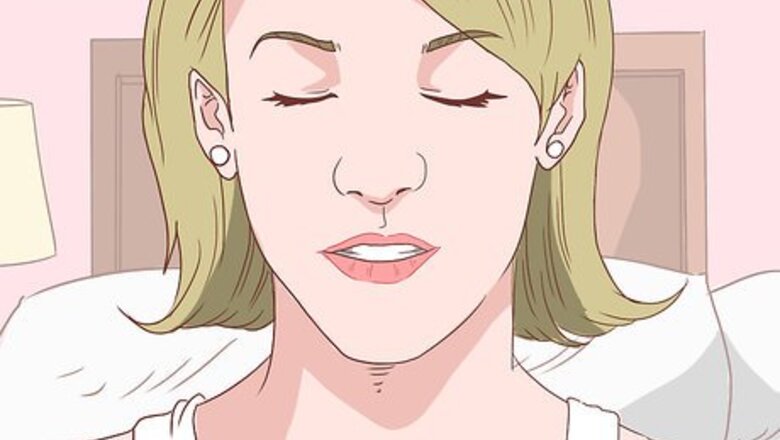
views
X
Research source
In many people, fear of losing sleep is actually what triggers the anxiety that keeps them awake.[2]
X
Trustworthy Source
National Health Service (UK)
Public healthcare system of the UK
Go to source
Learning how to calm your anxiety, relax your body, and practice good sleep habits can help you overcome sleeplessness and get back to your regular routine.
Calming the Mind
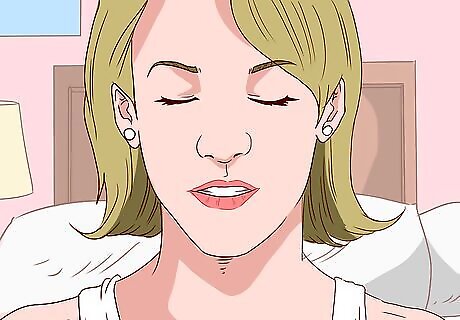
Practice meditation. Meditation helps ease anxiety, and can also help you relax to promote sleepiness. Meditation is not difficult to begin. Simply breathe in and out slowly and deeply from your diaphragm, focusing on the sensation and pattern of your breath. Breathe slowly and deeply. Count to three slowly while you inhale, hold the breath for three seconds, then exhale slowly to the count of three. Repeat as many times as necessary to feel calmer and more relaxed. Try using a mantra. Some people find that meditating to a particular phrase over and over helps them relax. Some experts recommend a good self-affirming mantra, such as "I feel safe and secure at night" or "I will sleep soundly at night."
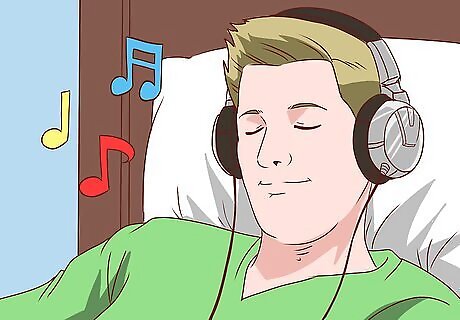
Listen to calming music. Listening to music may help lower your blood pressure and help you relax. If you have an album that always helps you unwind, try listening to that before bed. If not, find something that you find soothing. Many people find instrumental music like jazz or ambient sounds to be relaxing for bedtime.

Set aside downtime before bed. Some people find that doing something relaxing, like taking a hot bath or shower, reading a book, or working on a craft can help relax the mind before bed. Figure out something that you find relaxing and try to set aside some time each night before bed to indulge in your own pre-bedtime activities.
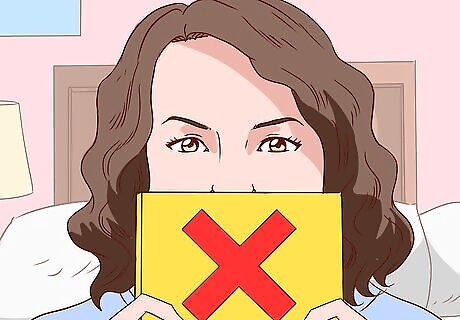
Avoid stressful activities before bed. It may sound obvious, but engaging in stressful activities shortly before bed can make you more anxious, which in turn may increase the chances of losing sleep. Avoid doing anything work-related or school-related before bed (which includes checking your work email), and resist the urge to look at the clock if you're lying restless in bed. Looking at the clock and counting how much sleep you're going to lose will only stress you out more, making it even more difficult to sleep.
Relaxing the Body
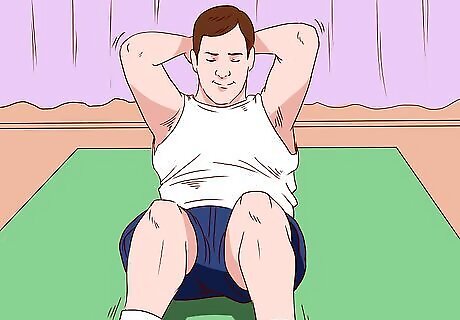
Get plenty of exercise. Exercise can simultaneously tire you out while also reducing stress. Studies have shown that physical exercise can drastically improve both the quality and length of your sleep. Exercising outdoors is ideal, as it allows you to get more fresh air and sunlight (if exercising during the day), but if you can't get outdoors then working out inside is an acceptable alternative. Some people get more wakeful if they exercise at night, while others can work out at night and sleep fine. Everyone's body is different in this regard, so it's best to figure out what time of day works for you.
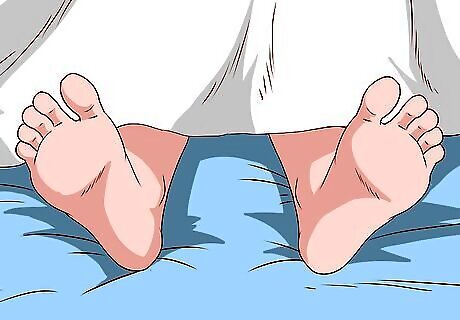
Tense and relax your muscles. Tensing your muscles may not sound like a good way to relax. But studies show that tensing your muscles and then immediately relaxing them can help relieve stress and calm the body from head to toe. Performing these tensing/relaxing exercises as you lie in bed may help alleviate anxiety and prepare your body for sleep. Start with your toes. Tense all the muscles in your feet, hold it for 10 seconds, then release all the tension at once. Continue this process and work your way up through every major muscle group in the body.
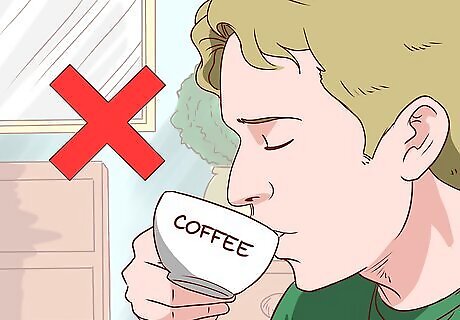
Cut out stimulants. If you're a smoker or a coffee drinker, either or both of these habits could be contributing towards a poor night's sleep. Nicotine and caffeine are both stimulants, which make it difficult to both fall asleep and stay asleep. Stimulants also exacerbate anxiety in some individuals. Because of this, stimulants could potentially affect your sleep and cause increased anxiety, further compounding your sleep loss problems. Stimulants like caffeine can have lingering physical effects for five to six hours after consumption. If you must drink coffee in the morning or at work, make sure you stop drinking it early enough in the afternoon that you'll be able to sleep at night.
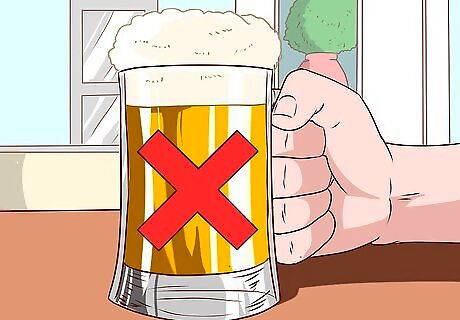
Skip the alcohol. Alcohol can make it difficult to remain asleep through the night by affecting the physical and psychological processes that typically take place while you sleep. But some health experts believe that alcohol use may also promote anxiety and increase the risk of panic attacks. If your sleeplessness is caused by anxiety, drinking any alcohol before bed could contribute to both anxiety and difficulty sleeping.
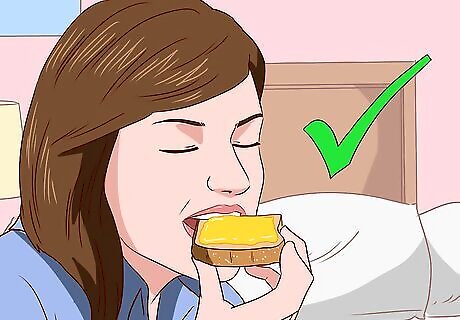
Avoid big meals before bed. Eating a large meal or a spicy meal before bed can cause indigestion, which in turn can make it difficult to sleep. Try to avoid eating large or spicy meals for two to three hours before going to sleep, if possible. If you really want something to eat, opt for a light snack no closer than 45 minutes before you intend to go to sleep. This will help fill you up without causing indigestion. Some good light snack options include: deli slices of turkey warm milk toast with peanut butter crackers and cheese cereal or oatmeal yogurt and fruit
Developing Good Sleep Habits
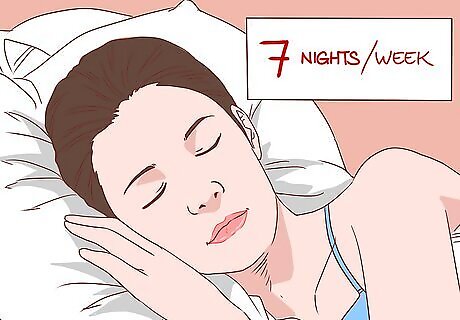
Maintain a regular sleep schedule. It may be tempting to stay up late and sleep in on the weekends, but studies show that this can potentially wreck your whole week's sleep schedule. Instead, try to maintain your usual sleep schedule seven nights a week, going to bed around the same time and waking up at the same time every day.
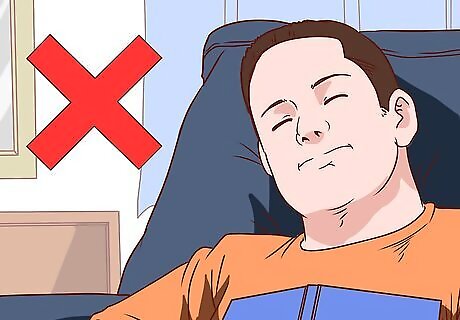
Avoid naps. Napping feels great when you're really drained, and a short "power nap" may help you get through a busy day on little sleep. But even a short nap could reset your internal sleep schedule, causing you to lie awake and restless at night. Instead of napping to catch up on sleep, try going to bed a little earlier that night. You'll sleep more soundly and cut down on the risk of losing even more sleep at night.
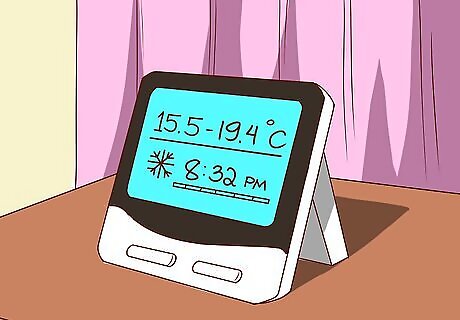
Keep a dark, cool room. Your bedroom should be a room that makes it easy to relax and fall asleep. Bright lights upset your body's circadian rhythm, which is why it's important to sleep in as dark a room as possible. That may require thicker curtains or blinds to block out any outside light, and leaving a fan or air conditioner on (or a window open) to keep it cool. Optimal sleep temperatures range between 60 to 67 degrees Fahrenheit (15.5 to 19.4 degrees Celsius). That's because your body temperature lowers slightly when you sleep, and being in a cool room may help initiate the process. Use curtains or blinds to block outside light, and turn off all artificial lighting in your room. If it's still to bright (say, if you work at night and sleep during the day), consider buying a sleep mask. They're fairly cheap and can be found online or at many retail stores. Try to block out as much outside sound as possible. If need be, you may have to sleep with some type of white noise, like a fan or white noise machine. Earplugs can also help, if you live in a particularly noisy neighborhood.
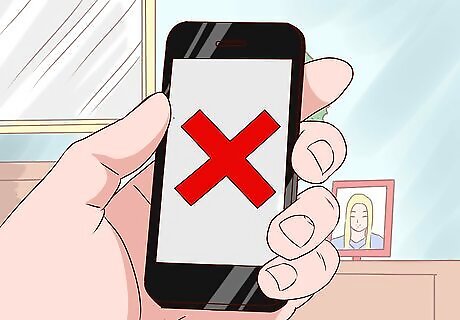
Avoid electronic devices. It may be tempting to respond to texts while you're lying in bed, or to surf the internet from your mobile phone or tablet in bed. But studies show that the glow from electronic screens can reduce your ability to fall asleep. Using electronics can also cause additional stress. For example, checking a work email or reading about upsetting news events may make it difficult to fall asleep. Turn off or set aside all electronic devices at least 30 minutes before bed. This will help you avoid stimulation and get ready to sleep.
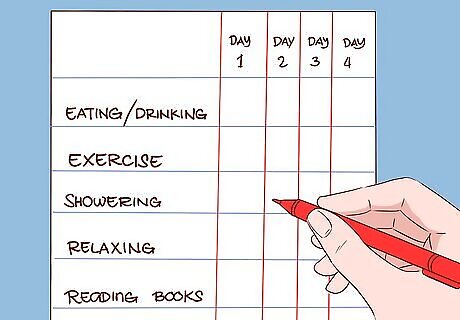
Try keeping a sleep log. Some days you may be unaware of your evening habits and how they could be contributing to sleeplessness. Try keeping a detailed log of all your evening habits, including anything you had to eat or drink, any activities you engaged in, and the precise time you did any of those things. This may help you realize that certain habits are interfering with your ability to sleep, or if nothing else it may make it easier for your doctor to diagnose what may be causing your sleep problems.



















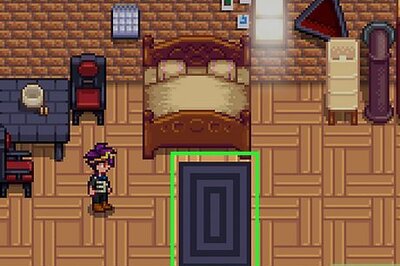
Comments
0 comment